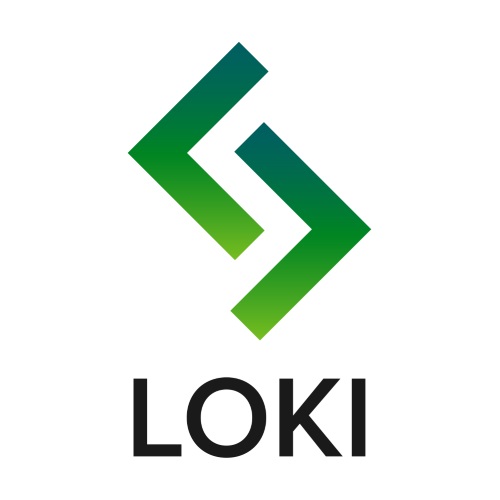
LOKINET: Blockchain-based Onion Routing Network
Loki is a privacy coin that is based on Monero, a cryptocurrency that has established itself as one of the most anonymous and private cryptocurrencies to date. Loki project developers are looking to create a completely anonymous, private, secure network for communication and trade.
When we use the Internet, we leave behind a lot of information about ourselves. One of the biggest traces we leave is our IP address, through which it is possible to find our physical location and even our identity. The best way to keep this information hidden is to use an onion routing network. Onion routing is a technique for anonymous communication over a computer network. In an onion network, messages are encapsulated in layers of encryption, analogous to layers of an onion. The encrypted data is transmitted through a series of network nodes called onion routers, each of which "peels" away a single layer, uncovering the data's next destination. When the final layer is decrypted, the message arrives at its destination. The sender remains anonymous because each intermediary knows only the location of the immediately preceding and following nodes.
Lokinet is a network provided by the Loki project. It is a unique, blockchain enforced and incentivized onion routing network, where you can browse the internet anonymously, and visit and host private websites all without exposing your identity or IP address. Because Loki is a privacy coin that is based on Monero, it has Monero's privacy features, Ring CT built into it. An added improvement that Loki offers is that one can run private decentralized apps on the coin. Lokinet provides a suite of tools to help maintain the maximum amount of anonymity possible while browsing, transacting and communicating online. Using the decentralized nature of blockchain technology, Loki creates new private and secure methods of interacting with the internet, as well as building privacy-centric applications, such as messaging services, forums, online marketplaces, and social media platforms.
Service Nodes:
Much of Loki's networking functionality and scalability is enabled by a set of incentivized nodes called Service Nodes. A service node provides a minimum level of bandwidth and storage to the network, and in return for its services, it receives a portion of the block reward from each block. Service Nodes on the Loki network will operate a low latency onion routing protocol to form Lokinet. Onion routing protocols allow for users to form tunnels or paths through a distributed network, using multiple nodes as hops to obfuscate the destination and origin of data packets. The network does not rely on trusted authorities and its state is fully derived from the blockchain. Users can connect to individual Service Nodes and create bidirectional paths for packets to be routed through. They can also utilize Service Nodes exit functionality to browse the external internet without their IP address being exposed.
Exit nodes:
Exit nodes allow users to make requests to the wider internet and return those requests through a mixnet. If used correctly, exit nodes allow users to browse the internet privately and without the users IP address being exposed to the server.
SNApps (Service Node Applications):
The network can be used to access internally hosted services called SNApps. SNApps allow you to host hidden private web applications inside of Lokinet. With SNApps you can build censorship-resistant social media platforms, news sites, marketplaces and other communities. The possibilities are endless. The function of SNApps is like so-called hidden services in Tor which have flourished.
Lokinet characteristics:
-
Private: all data that travels through Lokinet is encrypted and bounced through multiple nodes hiding the true origin.
-
No IP Addresses: your real IP address isn't revealed to Lokinet addresses.
-
Protocol Agnostic: Lokinet can carry any IP based protocol.
-
Application Support: Lokinet is like a VPN, it accepts all data types which makes it easy to integrate with your application.
-
-
No Central Servers: routing in Lokinet doesn't rely on any single server making it resilient to attack.
-
Censorship Resistant: internet service providers can't block access to your websites on Lokinet.
-
Trustless: the router list in Lokinet is held on a blockchain thus users can always verify the network state.
-
Cross-Platform: it supports any modern browser on Windows, Linux & Mac platforms.
-
Sybil Resistant: Lokinet has an inherent market-based Sybil resistance model.
-
Open Source: Lokinet is fully open source, meaning anyone can contribute.
By combining the concepts of blockchain and online routing, Loki project proposes a model for anonymous transactions and decentralized communication built on a network of economically incentivized nodes. Additionally, Loki proposes improvements upon previous research and open-source projects and presents a new anonymous routing protocol which offers significant advantages over existing protocols.privacy